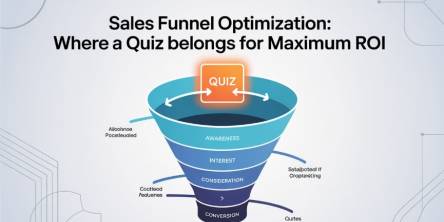Reasons for Selecting Angular for Healthcare App Development

The global healthcare sector has been embracing digital solutions for a while now. But to what end, one may wonder? Well, simply put, the sector has been quick to integrate digital solutions to help enhance the quality of patient care and operational efficiency. Web applications, for example, from patient portals to data management systems, have played a central role in this transformation worldwide. However, one must note that building such robust and secure healthcare applications necessitates a rock-solid foundation. A foundation of what, you ask. Well, I mean to say that the framework you choose will significantly impact the application's success. This is because the framework brings with it the necessary tools for creating safe, scalable, and user-friendly solutions.
And that is pretty much what we will discuss in this blog, folks. I mean we will examine why Angular development services make so much sense as a digital development tool.
Digital Transformation, Angular, and Healthcare: What is Happening?
The medical services landscape is quickly making way for digital platforms, supplanting customary paper-based systems with web applications for different capabilities, for example, patient portals, scheduling appointments, and data management among other things. Angular, a well-known programming framework, is especially appropriate for healthcare apps because of its structured methodology, which guarantees app development and support effectiveness. It likewise provides robust security features compliant with healthcare information guidelines. Furthermore, this framework's adaptability and easy-to-use interface have further added to the sector's digital evolution.
Many Ways in Which Angular Empowers the Healthcare Sector
- Convenience: Angular offers various advantages for healthcare application development, especially in improving convenience for both patients and staff. With Angular, programmers can undoubtedly make secure patient portals, empowering people to manage appointments, access clinical records, and speak with providers without a fuss. In addition, internal applications for staff can be efficiently developed, streamlining workflows and diminishing administrative responsibility.
- Enhanced user experiences: Angular also offers convincing reasons for healthcare application development, especially in improving user experiences. Its organized approach helps developers create intuitive interfaces custom-made for patients and medical services professionals. This guarantees a consistent and positive user experience. Also, Angular works with responsive design, enabling applications to change impeccably across various gadgets, such as tablets, smartphones, desktops, etc.
- Better accessibility: One more advantage that Angular offers is its ability for better accessibility. By complying with Web Content Accessibility Guidelines (WCAG), Angular-based apps guarantee inclusivity for users with disabilities. This, consequently, improves accessibility for all users. Additionally, Angular's support for multiple programming languages empowers programmers to make apps that care for different patient populations' needs.
- Cost efficiency: Angular also offers rather convincing benefits for healthcare application development, especially in the context of cost-effectiveness. Its streamlined features and functionalities accelerate development, possibly prompting decreased project finishing times and lower improvement costs. Besides that, the capacity to create reusable UI parts empowers effective resource use while building different applications within a given healthcare ecosystem.
- Telehealth integration: Angular is a top choice for healthcare application development, especially concerning telehealth services. Programmers can make applications that facilitate secure video conferencing and chat functionalities, empowering virtual real-time discussions between patients and healthcare service providers. Moreover, Angular permits the reconciliation of elements for remote patient monitoring, empowering patients to track their vitals and share information with medical services experts.
Now that you understand the immense value Angular brings to the table for healthcare providers, you can start looking for an Angular development company as soon as possible to harness its potential benefits. By partnering with a skilled team, you can create robust, scalable, and efficient healthcare applications that streamline operations, improve patient care, and stay ahead of industry advancements.
Similar Articles
In 2026, Microsoft Excel continues to power the U.S. business ecosystem, supporting over 80% of financial modeling, 70% of operational reporting, and nearly 65% of analyst-driven decision workflows across enterprises.
The rapidly growing volume and speed of digital transactions have had a whole lot of implications for businesses
We live in the age of cloud computing. That's plain to see. However, what may escape many are the operational and financial challenges of managing multiple independent clusters.
Times have changed and how! Take modern technology and the fast-paced digital economy, it is driving. Given the market conditions, any company's infrastructure has become more than just a technical detail.
It has been for everyone to see that the modern digital economy is distinguished by high volume, real-time financial transactions.
Business success has become reliant on efficiency and agility of the underlying technology infrastructure. Clearly, companies now depend on cloud computing to provide seamless services while managing exponential data growth.
Hospitals operate in environments where availability and patient safety are paramount at all times. As medical supply chains expand and regulatory oversight becomes more demanding, manual tracking methods introduce delays and risk.
Every sales funnel has one core goal: turn attention into revenue as efficiently as possible. Yet many funnels leak value at critical stages—visitors bounce, leads go cold, and sales teams chase prospects who were never a good fit.
Decentralized Finance (DeFi) has transformed how users earn passive income through blockchain-based financial systems. Among its most popular use cases,









